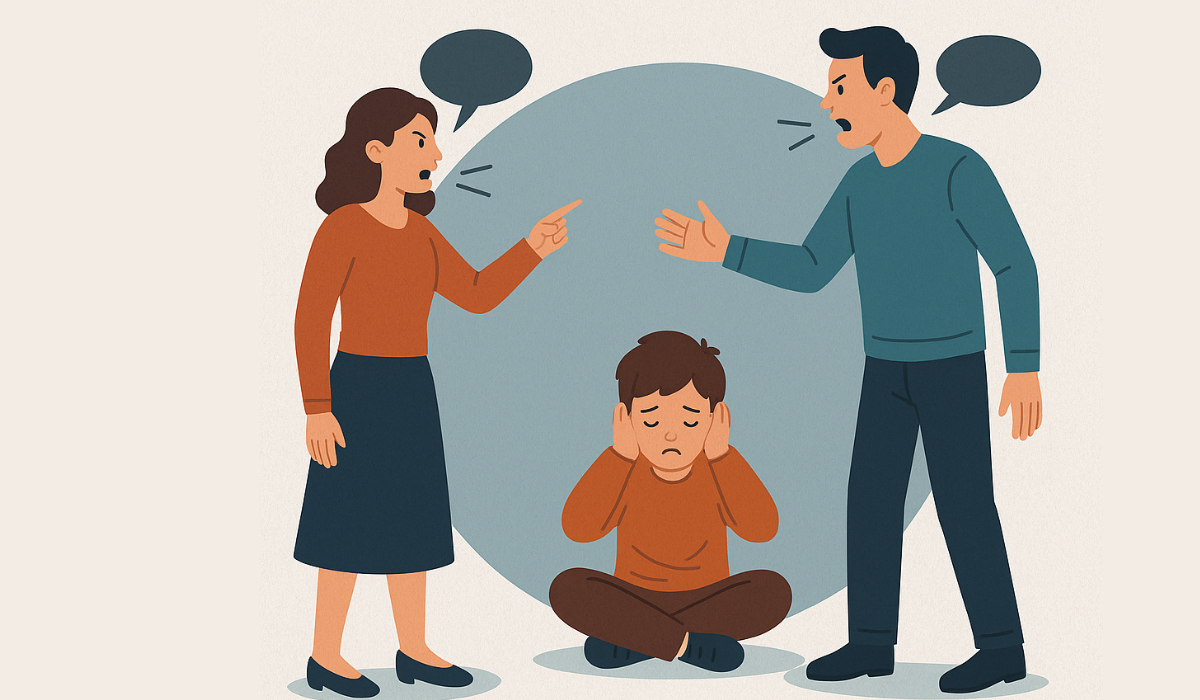Let’s be honest—building new habits is tough.
You start off motivated. Maybe it’s New Year’s, a Monday morning, or just a day where you feel ready to turn over a new leaf. You tell yourself, “This time, I’m going to eat healthier, wake up earlier, stay off my phone before bed, and finally take care of myself.” But then… life happens.
We’ve all been there.
So, what if we told you there’s a better way—one that doesn’t rely on willpower alone? That’s where therapy for building new habits and mindset steps in.
Why Do Habits Fail?
Before we jump into the therapy part, let’s understand something crucial: habits fail not because we’re lazy or broken—but because we rely too much on motivation.
Motivation is great, but it fades.
According to behavioral psychologist Dr. B.J. Fogg, “You change best by feeling good, not by feeling bad.” That means shame and guilt don’t help. What helps is structure, emotional insight, and guided strategies—all of which therapy offers.
What Is Therapy for Building New Habits and Mindset?
It’s not just sitting on a couch and talking about your childhood. This kind of therapy is action-focused. It’s about understanding your patterns, reframing your thoughts, and developing tools that support lasting change.
Think of it as coaching for your mental wellness and daily routines.
Therapists use proven techniques from:
- Cognitive Behavioral Therapy (CBT)
- Dialectical Behavior Therapy (DBT)
- Acceptance and Commitment Therapy (ACT)
- Life coaching and motivational interviewing
These methods go deep into how you think, why you react a certain way, and what might be blocking you from real progress.
Real Talk: Therapy Isn’t Just for “Big Problems”
People often think therapy is only for dealing with trauma or anxiety. But it’s equally powerful for self-growth, goal setting, and mindset development.
As one client put it:
“I used to think therapy was for when you’re falling apart. Turns out, it’s also for when you’re ready to grow up.”
If you’ve been struggling with procrastination, lack of focus, emotional burnout, or falling off the wagon with your routines, this type of therapy is for you.
How Does It Actually Work?
Let’s break it down. A therapist who focuses on therapy for building new habits and mindset will typically walk you through:
Identifying the Real Problem
Is it that you can’t wake up early, or that your evenings are too stimulating to fall asleep on time?
Is it that you don’t eat healthy, or that emotional eating is filling an unmet need?
Therapy helps uncover the real reasons behind behavior.
Setting Realistic Micro-Goals
Forget huge, overwhelming resolutions. Your therapist will guide you to set small, consistent goals—like:
- Drinking one extra glass of water daily
- Journaling for 5 minutes in the morning
- Putting your phone away 10 minutes before bed
Success builds momentum.
Uncovering Thought Patterns
Often, it’s not the action that’s hard—it’s the thought that precedes it.
“I’ll never be consistent.”
“What’s the point?”
“I always mess up.”
These thoughts sabotage you before you begin. Therapy helps you reframe them and build inner resilience.
Accountability and Progress Tracking
Your therapist becomes a safe accountability partner. You reflect on what worked, what didn’t, and adjust accordingly—without judgment.
Building Mental Flexibility
You’ll learn that missing a day doesn’t mean you’ve failed.
You’ll discover how to “reset” rather than “restart.”
As therapist and author Lori Gottlieb says, “Change is hard at first, messy in the middle, and gorgeous at the end.”
The Role of Mindset in Habit Formation
Let’s zoom in on mindset.
Your mindset is the lens through which you view challenges, success, and failure. If that lens is cracked with self-doubt, no habit will stick.
Therapy helps you shift from a fixed mindset to a growth mindset.
Fixed Mindset Says:
- “I’m just not good at routines.”
- “I always give up.”
- “I can’t change.”
Growth Mindset Says:
- “I’m learning how to stay consistent.”
- “I’m improving a little each week.”
- “I’ve done hard things before—I can do this too.”
This mindset shift is a game-changer.
Habit Loops: Rewiring the Brain
Therapy also dives into your habit loops—a concept made popular by Charles Duhigg’s book The Power of Habit.
A habit has three parts:
- Cue – what triggers the behavior
- Routine – the behavior itself
- Reward – the benefit or relief you get
Therapists help you interrupt old loops and replace them with better ones. For example:
Old Loop:
Cue: Stress → Routine: Scrolling endlessly → Reward: Mental escape
New Loop:
Cue: Stress → Routine: Deep breathing + 5 min walk → Reward: Mental relief and energy boost
You’re still addressing the need—but in a healthier way.
Therapy Techniques You’ll Love
Here are some hands-on tools therapists use that are super effective:
- Habit stacking (adding a new habit onto an existing one)
- “After I make my morning coffee, I’ll do 10 squats.”
- Visualization
- Imagine yourself finishing that workout or completing the task—and how good it feels.
- Journaling
- Not just about feelings. It’s about tracking patterns, recognizing wins, and learning from setbacks.
- Mindfulness and grounding exercises
- These help keep you in the present moment instead of spiraling into future worries or past regrets.

Real Results: What People Say
Let’s hear from real people using therapy to build better habits and mindsets:
“I used to wake up and immediately feel anxious. My therapist helped me build a 5-minute morning routine that changed everything.”
— Amrita, 31
“Therapy gave me the clarity to see how perfectionism was holding me back. I no longer need to ‘do it all’—I just need to show up.”
— Josh, 38
“I started therapy for burnout. I left with a toolbox of habits that make my life feel like mine again.”
— Deepa, 27
When Should You Start?
If any of this resonates with you—don’t wait for a breakdown to begin a breakthrough.
Start therapy when:
- You feel stuck in a loop
- You’re tired of starting over
- You want more control over your time and energy
- You’re ready to grow into your next version
Therapy isn’t a magic wand—but it is a powerful compass.
Final Thought: You Deserve Consistency and Peace
Let’s end with this:
You are allowed to be both a work in progress and proud of how far you’ve come.
Don’t wait for perfect timing. Building new habits and a resilient mindset starts with one step—and therapy can guide you there.
Whether you’re struggling with routines, battling burnout, or just want to take your growth seriously, consider exploring therapy for building new habits and mindset. The version of you that’s thriving? They’re closer than you think.
About Us
Meet Crystal Perdue – A Guide for Your Inner Journey
From Stuck to Strong, From Hurt to Healing
Life invites us to grow, and I’m here to walk beside you as you answer that call. With compassion, experience, and a therapy-informed lens, I support your transformation from the inside out.
✨ If you’re ready to face emotional challenges and embrace your truth, I’m here for you.
👉 Book a session today—and step into the change your soul has been asking for.
FAQs
What is therapy for building new habits and mindset?
Therapy for building new habits and mindset is a structured, supportive process that helps you understand your thought patterns, break unhelpful routines, and create long-lasting, positive behaviors. It often uses techniques from Cognitive Behavioral Therapy (CBT), mindfulness, and life coaching to help you stay consistent and emotionally balanced.
How can therapy help me build better habits?
Therapists help you identify what’s blocking your progress—like perfectionism, fear of failure, or emotional burnout. They guide you to create small, achievable goals, track your progress, and build habits that align with your values and lifestyle.
Is therapy only for people with mental health issues?
Not at all. While therapy is helpful for mental health challenges, it’s also a powerful tool for personal growth. Many people use therapy for self-development, habit formation, and mindset improvement—even if they aren’t in crisis.
Can therapy help me stop procrastinating?
Yes! Procrastination is often linked to deeper emotional patterns like anxiety, fear of judgment, or low motivation. Therapy for building new habits and mindset helps you understand those patterns and replace them with action-based strategies.
What types of therapy work best for habit change?
Cognitive Behavioral Therapy (CBT) is one of the most effective types for habit change. Other helpful approaches include Acceptance and Commitment Therapy (ACT), Dialectical Behavior Therapy (DBT), and even motivational interviewing techniques. Your therapist may use a mix of these based on your needs.
How long does it take to build new habits through therapy?
There’s no one-size-fits-all answer, but many people begin to see meaningful changes in a few weeks to a couple of months. Consistency and reflection play a huge role. The beauty of therapy is that it supports you through both the ups and the setbacks.
Can therapy really help improve my mindset?
Absolutely. Your mindset influences how you respond to failure, challenges, and opportunities. Therapy helps shift limiting beliefs, encourages a growth-oriented outlook, and helps you build emotional resilience.
What’s the difference between therapy and life coaching for habits?
Life coaching is goal-oriented and often focuses on future planning. Therapy, while also forward-thinking, dives deeper into emotional blocks, trauma, and behavioral patterns. If you’re looking for emotional healing and habit change, therapy offers a more holistic approach.
Do I need to see a therapist in person, or is online therapy effective for habit building?
Online therapy can be just as effective as in-person sessions for building habits and mindset. Many therapists now offer virtual sessions with personalized guidance, accountability, and practical tools to help you grow—wherever you are.
How do I find the right therapist for building habits and mindset?
Look for licensed therapists who specialize in behavior change, CBT, or personal development. Read their bios, check reviews, and don’t be afraid to ask questions in a consultation. The right fit makes a big difference in your journey toward building new habits and a stronger mindset.






